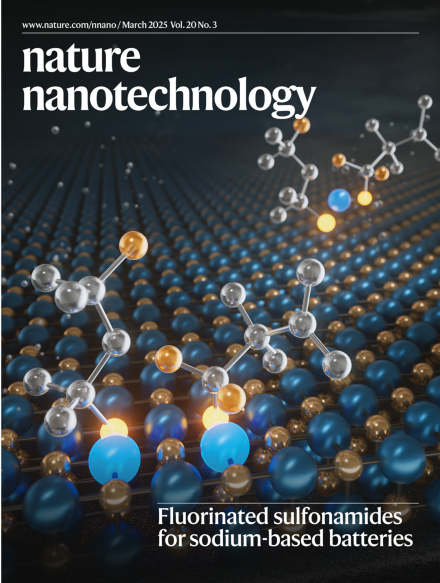

Journal Name: Nature Nanotechnology
Overview
Nature Nanotechnology is a leading scientific journal that publishes cutting-edge research in the field of nanotechnology. Covering a broad spectrum of topics, including nanomaterials, nanoelectronics, nanomedicine, and molecular nanotechnology, this journal is a crucial resource for scientists, researchers, and industry professionals.
What is Nature Nanotechnology?
Nature Nanotechnology is a high-impact, peer-reviewed journal under the prestigious Nature Publishing Group. It serves as a global platform for groundbreaking discoveries and innovative research in nanoscience. With a focus on interdisciplinary studies, it connects physics, chemistry, biology, and engineering to advance nanotechnology applications.
Key Research Areas in Nature Nanotechnology
- Nanomaterials: Development of novel nanomaterials with enhanced physical and chemical properties for industrial and medical applications.
- Nanoelectronics: Miniaturized electronic components improving computational power and energy efficiency.
- Nanomedicine: Breakthroughs in drug delivery systems, cancer treatments, and biosensors.
- Environmental Nanotechnology: Sustainable nanotechnology solutions for pollution control, water purification, and renewable energy.
- Molecular Nanotechnology: Engineering molecules for targeted applications in material science and healthcare.
Real-World Applications of Nanotechnology
- Healthcare: Targeted drug delivery, early disease detection, and advanced medical imaging.
- Electronics: Faster, more efficient semiconductors and flexible electronic displays.
- Energy Sector: Enhanced solar panels, batteries, and fuel cells for sustainable energy solutions.
- Environmental Protection: Nano-based filtration systems for clean water and air purification.
Future Prospects and Challenges
As nanotechnology continues to evolve, its potential impact on industries like biotechnology, AI, and quantum computing is enormous. However, ethical concerns, environmental risks, and regulatory challenges must be addressed to ensure responsible nanotech development.
About
Nature Nanotechnology is a rapidly growing field that bridges physics, chemistry, biology, and engineering to manipulate materials at an atomic and molecular scale. This revolutionary branch of science is redefining industries, from healthcare to electronics, offering groundbreaking solutions to some of the world's most pressing challenges.
What is Nature Nanotechnology?
Nanotechnology deals with structures and devices at the nanoscale (1-100 nanometers), where materials exhibit unique properties due to quantum effects. Nature Nanotechnology is both a scientific journal and a research field dedicated to studying these phenomena, fostering innovation and collaboration among global scientists.
Applications of Nature Nanotechnology
- Healthcare and Medicine
- Targeted Drug Delivery: Nanoparticles enhance the effectiveness of drugs by directing them to specific cells, reducing side effects.
- Cancer Treatment: Nano-based therapies like gold nanoparticles and quantum dots improve early diagnosis and targeted treatment.
- Regenerative Medicine: Nanomaterials contribute to tissue engineering and the development of artificial organs.
- Electronics and Computing
- Nanochips: Advanced semiconductor nanotechnology enables faster, smaller, and more energy-efficient processors.
- Quantum Computing: Nanotechnology is crucial in developing quantum dots and transistors for next-generation computing.
- Flexible Electronics: Carbon nanotubes and graphene are revolutionizing wearable and bendable devices.
- Environmental Sustainability
- Water Purification: Nanofilters remove contaminants and provide access to clean drinking water.
- Energy Storage: Nanomaterials improve battery performance and efficiency, leading to longer-lasting energy storage.
- Green Nanotechnology: Researchers are developing eco-friendly nanomaterials to reduce pollution and minimize carbon footprints.
- Aerospace and Automotive
- Stronger, Lighter Materials: Nanocomposites enhance the durability and efficiency of aircraft and vehicles.
- Self-healing Coatings: Nano-coatings improve resistance to scratches and environmental damage.
The Future of Nature Nanotechnology
As research advances, Nature Nanotechnology is set to transform industries with innovative breakthroughs. The development of self-replicating nanobots, bio-nanotechnology, and advanced nano-medicine could redefine human health and technological progress. However, ethical and safety concerns must be addressed to ensure responsible use.
Scope
Nanotechnology is a revolutionary field that manipulates matter at the atomic and molecular levels, typically within the nanometer scale (1 to 100 nanometers). This cutting-edge science is transforming industries, from healthcare and electronics to energy and environmental sustainability. Understanding the scope and nature of nanotechnology is essential for leveraging its full potential in various fields.
Nature of Nanotechnology
Nanotechnology involves the design, synthesis, and application of materials and devices at the nanoscale. At this level, materials exhibit unique properties such as increased strength, enhanced electrical conductivity, and improved reactivity. These characteristics arise due to quantum effects and the increased surface area of nanoparticles compared to their bulk counterparts.
Nanotechnology can be categorized into several types based on its applications and methodologies:
- Nanomaterials: The development of materials with novel properties, such as carbon nanotubes and quantum dots.
- Nanoelectronics: Enhancing electronic devices, making them faster and more efficient.
- Nanomedicine: Using nanoparticles for targeted drug delivery, medical imaging, and regenerative medicine.
- Nanophotonics: Manipulating light at the nanoscale for advanced optical applications.
- Nanomanufacturing: Producing nanoscale products with high precision.
Scope of Nanotechnology
Nanotechnology has a vast and promising scope, impacting multiple industries and leading to groundbreaking advancements.
1. Healthcare and Medicine
Nanotechnology is revolutionizing healthcare through early disease detection, precision medicine, and drug delivery systems. Nanoparticles can target cancer cells directly, minimizing side effects. Moreover, nanosensors aid in real-time health monitoring, improving patient outcomes.
2. Electronics and Computing
Nanoelectronics is driving the development of faster, smaller, and more efficient devices. Transistors and memory chips are being miniaturized to enhance performance, leading to advancements in artificial intelligence, quantum computing, and wearable technology.
3. Energy Sector
Nanotechnology contributes to energy efficiency and sustainability. Nanomaterials enhance solar panel efficiency, improve battery storage capacity, and create lightweight, high-performance materials for energy conservation.
4. Environmental Applications
Nanotechnology plays a significant role in environmental protection. Nanoparticles aid in water purification, air filtration, and waste management by breaking down pollutants and enhancing recycling methods.
5. Agriculture and Food Industry
Nanotechnology improves agricultural productivity by developing nano-fertilizers, pesticides, and food packaging solutions that increase shelf life and reduce contamination risks.
Future Prospects
As research and innovation continue, nanotechnology is expected to integrate further into daily life, enhancing industries and promoting sustainable development. Scientists are exploring nanorobots for medical applications, self-cleaning materials, and advanced AI-driven nanotech solutions.